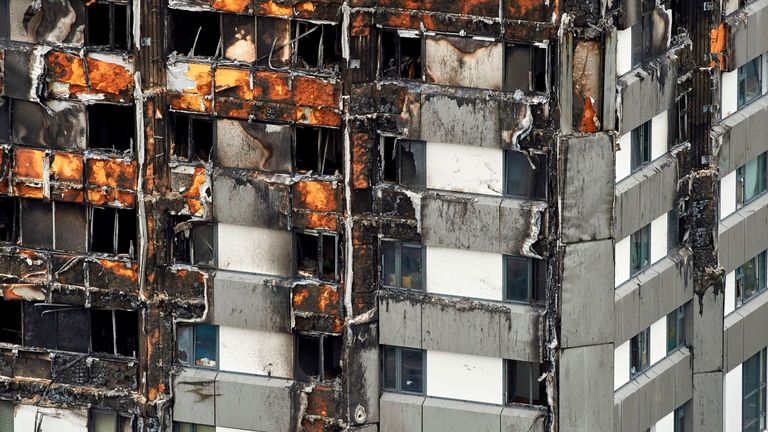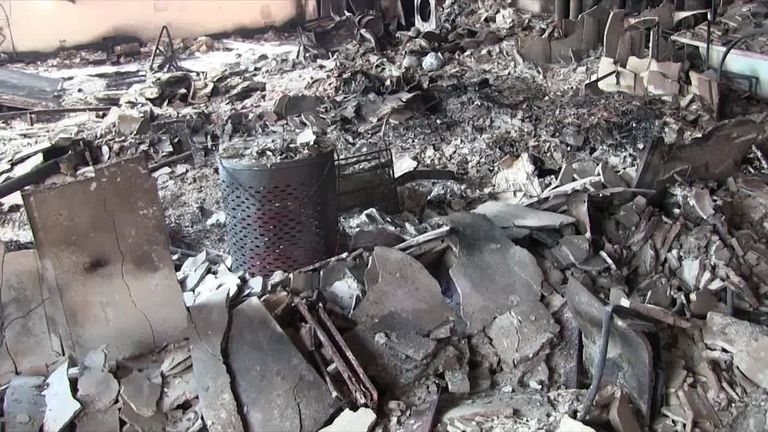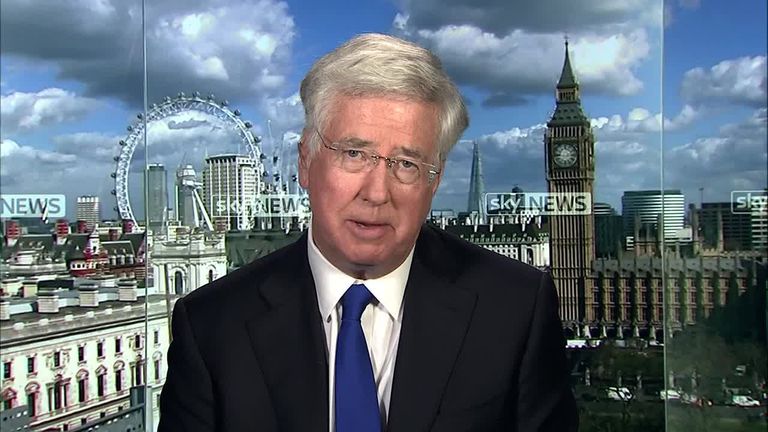Grenfell Tower fire inquiry: Six questions victims want answered
Questions include why the small fire was able to spread so quickly, and who signed off the ill-fated tower block refurbishment.
Tuesday 5 June 2018 14:01, UK
The public inquiry into the Grenfell Tower fire is set to be a wide-ranging investigation.
Not only did the tragedy claim 72 lives, but it has revealed what one fire safety expert described as the worst ever failure in the history of British construction.
begins to compile his terms of reference, here are six questions people want answered.
1. Why did a small fire in a fridge spread so quickly and why were so many people not able to escape?
A thorough understanding of forensic details on how the fire spread, and of the catastrophic failure of the measures in place to keep people safe, are the most pressing issues.
2. How could this happen in a building refurbished in 2016, at a cost of £10m and approved and signed off by one of London's wealthiest boroughs?
Every aspect of the building will be examined, from its original design to subsequent alterations and the latest refurbishment.
3. What documentary evidence can be found to show who was responsible for crucial aspects of the building's design and construction, and whether they did they did their jobs properly?
Chancellor Philip Hammond controversially claimed that the combustible polyethylene cladding attached to the outside of the building is banned in the UK, but the inquiry will want to look at other issues too, including the polyisocyanurate insulation panels that released deadly hydrogen cyanide gas as they burned.
4. Where were building control officers and the Government's fire investigators and safety advisers while tower blocks across the country were being covered in material that burns but was passed as fire safe?
Last year, the Government was assured by its advisers BRE Global that regulations were "adequate" to keep people safe.
Now, the Prime Minister has said an investigation into the problem will need to look back decades. Failures in building control are potentially the most far-reaching issues to tackle.
5. Who is responsible?
As high-rise buildings across the country are stripped of their cladding following Government-ordered emergency tests, the construction industry - and the officials who regulate, advise and test its products - are all under pressure.
6. When will it end?
The Government has said it wants some answers soon, and it is thought an interim report could come out this summer.
But the Chilcot inquiry into the Iraq war shows how public inquiries can get bogged down when those who face criticism are given the opportunity to respond before publication.
With the UK construction industry worth more than £100bn a year and supporting around three million jobs - and the likelihood that Government advisers and departmental decisions will come under scrutiny - the emotional, financial and political stakes could not be higher.






